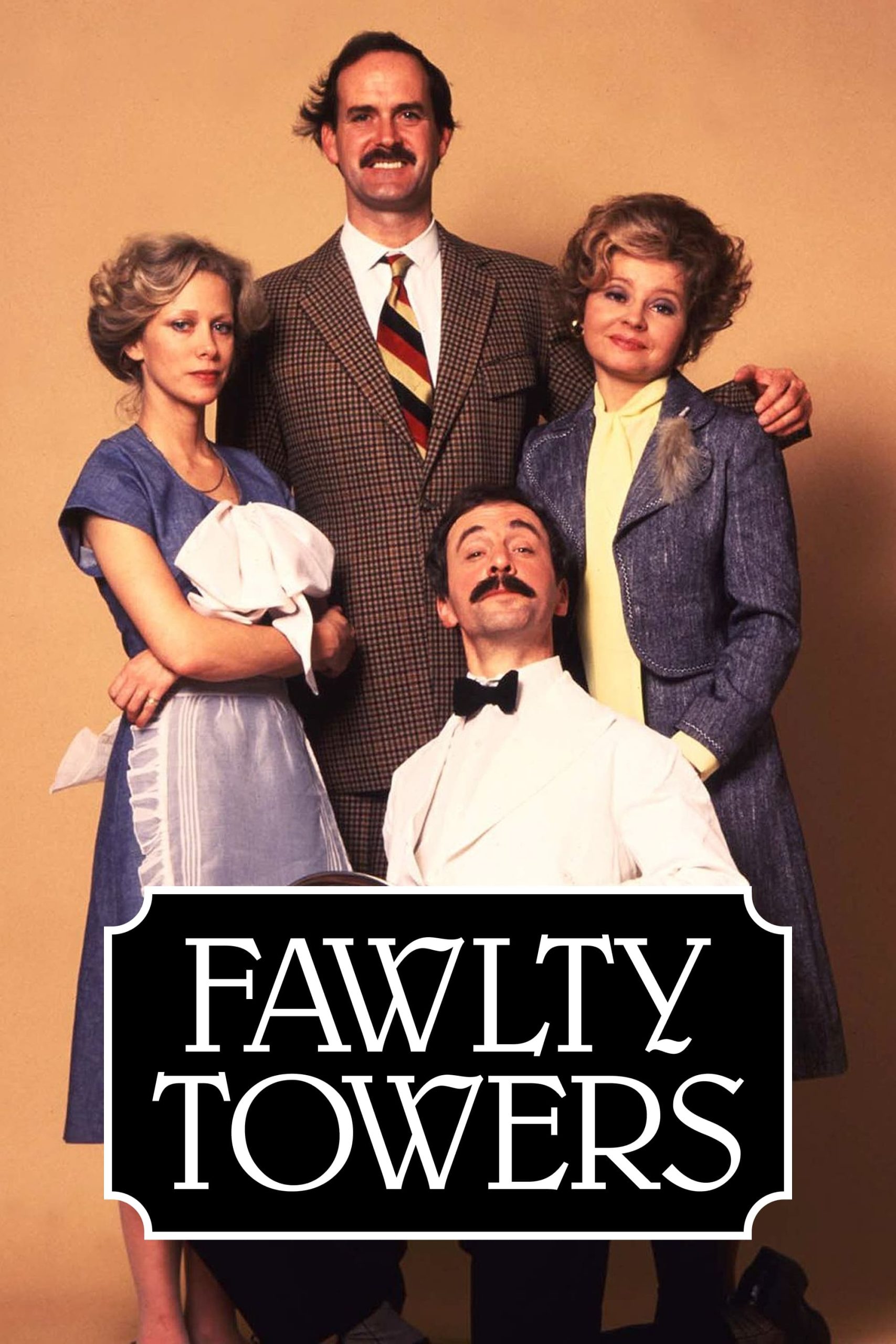
Owner Basil Fawlty, his wife Sybil, a chambermaid Polly, and Spanish waiter Manuel attempt to run their hotel amidst farcical situations and an array of demanding guests.
24 Feb Fawlty Towers (1975-1979)
Silly Walk
Recently I have been trying to better understand humour. So because I am old enough to be able to, I have been thinking about Monty Python and in particular which of the Pythonistas mattered more to me. I was lucky enough to find a British documentary on the history of the group, ‘Before the Flying Circus.‘ It is good enough to indicate what each of the six thought about humour. Going back over the Python skits I liked, it was easy to suss out who was what.
There were clearly two cliques. One (Palin, Gilliam, Jones) was more concerned with overall structure, pace and package. The other three (Cleese, Idle and Chapman) were the actual funny ones, at least by the tedometer. Chapman was the lessor of these with Cleese and Idle being the really silly ones who thought more deeply about the nature of humour than the others.
So I come to Fawlty Towers knowing a few things:
• This is Cleese at what he thinks is his finest.
• This is Cleese with his wife, cocreating something together and that is something I consider a miracle in any context. When this happens, when the energies of love are entwined with creation, I expect a lot
• This is Cleese spending huge amounts of time refining. These scripts and performances were sweated over.
What I am finding in viewing these, plus the long Cleese interview on the DVD, is that the shows themselves are not funny. This is all just context so that Cleese‘s character can be funny, in the manner that Lucille Ball was funny in her several TeeVee shows. Cleese clearly has two comic techniques in mind, and both do work for me.
One is the character, and his physical manner. Cleese is a physical clown who invents a carriage first in creating a character. He walks funny, and moves in a way that defines physical farce today. He claims to have been very aware of the parody of a class archetype and shamelessly puts it into the physical manner. We are supposed to not like the guy, but still have some attachment. That this works well in the UK, by completely different dynamics speaks well of what this guy knows about funny.
The other is the dialog. The other characters are there only so that the dialog can be delivered with carefully engineered cadence. The laugh lines are less clever than I need. But then I am using the Marx brothers as the paradigm of linguistic and physical humour delivered in an engineered character/situation mix.
Posted in 2010
Ted’s Evaluation — 2 of 3: Has some interesting elements.


No Comments